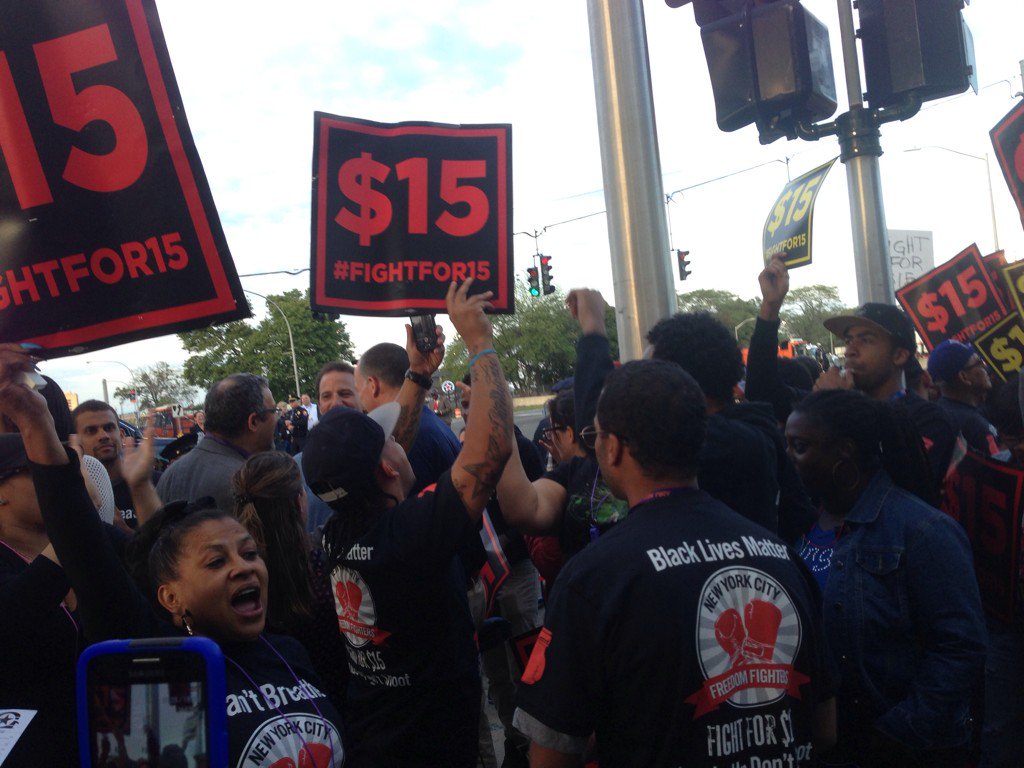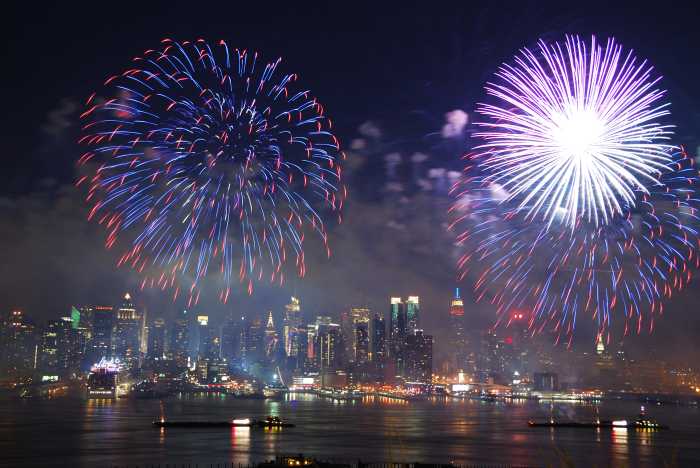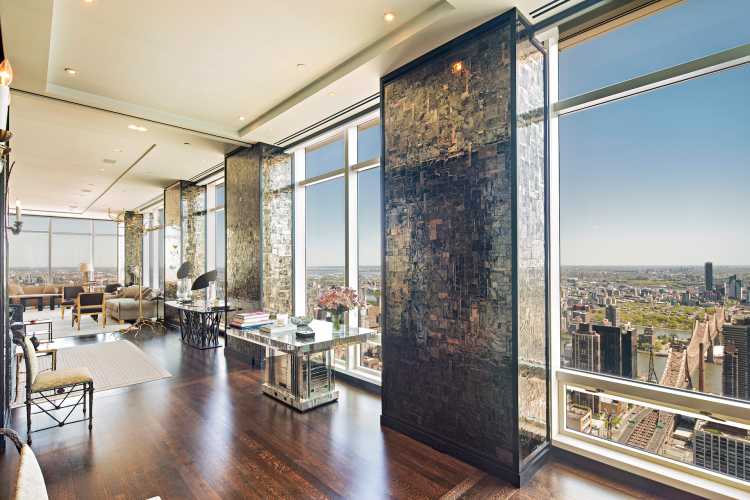Nearly two-dozen protestors were arrested Monday night while blocking one of the main access points for the two presidential candidates, Acting Nassau County Police Commissioner Thomas Krumpter told the Press.
About 20 people were blocking Charles Lindbergh Boulevard on the east side of Hofstra University in an act of civil disobedience, Krumpter said.
“They were seeking to be arrested, and unfortunately they forced us to arrest them,” he added. “They were in a roadway where the presidential candidates are coming in” on their motorcade.
Police classified 23 arrests as disorderly conduct. There was one additional arrest unrelated to the blockade.
Krumpter estimated that about 2,000 demonstrators had descended on Hofstra on Monday. Before the debate started the estimate was that 10,000 protesters were showing up.
The protesters have been airing a variety of grievances, including setting a $15 minimum wage, abortion rights, and environmental issues.
“We work! We sweat! Put $15 on our check!” #HofDebate16 #LIPDebate #debates pic.twitter.com/c6PUGGwKHf
— Long Island Press (@LongIslandPress) September 26, 2016
Krumpter, who last week said the debate would be one of Nassau County’s most significant security events in decades, said everything was going according to plan. He described most of the day as “uneventful.”
More than 1,000 officers were providing security in and around Hofstra. A half-dozen other agencies, including the Secret Service and various police departments were providing support.
But manpower was not the only tool law enforcement has deployed: Nassau police also floated a surveillance blimp above the campus to monitor the events from the air.
#NCPD surveillance blimp suckin in data above @HofstraU prez debate nite protests #HofDebate16 #LIPDebate #debates pic.twitter.com/FTf6tD7zKq
— Long Island Press (@LongIslandPress) September 27, 2016
The incident involving Stein’s supporters was the not the first of the day. The Green Party nominee had been escorted off the campus following an interview she conducted with MSNBC, which supplied her with credentials.
“When they were done doing interviews, she turned her credentials back over to MSNBC and she voluntarily was basically shown off the campus,” Krumpter said.
Stein has been outspoken about the lack of third-party access for presidential debates. A similar complaint was made by Gary Johnson, the Libertarian candidate, whose national poll ratings were reportedly higher than hers at 8 percent compared to her 3 percent. According to the Commission on Presidential Debates, neither third-party candidate surpassed the 15-percentage point survey threshold in order to qualify for prime time.


























